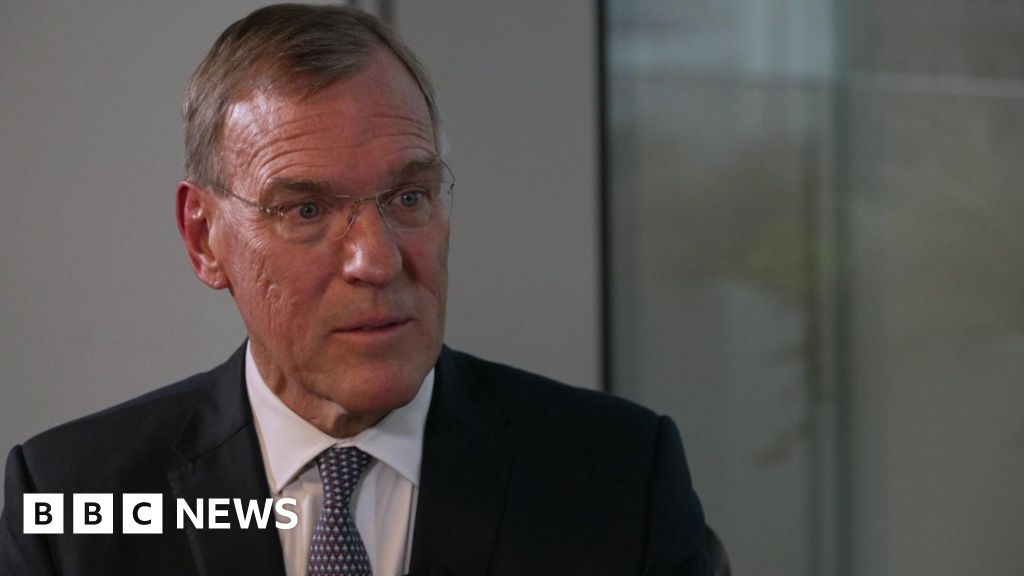
Goldman Sachs CEO Richard Gnodde Discusses Evolution of Diversity Policy and Economic Growth
By Simon Jack and Dearbail Jordan, BBC News Business Editor and Reporter
In a recent interview, Richard Gnodde, the chief executive of Goldman Sachs International, revealed that the investment bank has decided to abolish its internal diversity policy requiring companies to have diverse board members before offering advisory services for public offerings. This change comes as the firm believes that the initial objectives of the policy have been achieved.
Previously, Goldman Sachs mandated that businesses seeking to go public must have at least two diverse board members, including one woman. Gnodde commented, "That policy was established to encourage a shift in behavior, and I believe that change has occurred."
During the interview, Gnodde also emphasized the necessity for the UK government to accelerate infrastructure projects and voiced concerns that uncertainty surrounding U.S. trade policies is dampening business confidence.
Goldman Sachs initiated its diversity requirement in 2020, starting with one diverse board member and later expanding to two. Gnodde remarked, "It is crucial to have a variety of perspectives on a board. Many companies have embraced diversity and made significant progress in this area. This policy was relevant some years ago, and I believe it has fulfilled its purpose."
In December, a U.S. federal appeals court ruled that Nasdaq could not enforce regulations mandating diversity on corporate boards or require explanations for not meeting these standards. Following this legal development, Goldman Sachs suspended its formal board diversity policy.
Reflecting on the recent political climate, Gnodde noted that previous actions taken by former President Donald Trump related to diversity initiatives have led some companies, including Google and Meta, to reconsider their policies. When asked about any impacts from these changes, Gnodde maintained, "I can only speak for our institution; I don’t believe that’s influencing our direction. We remain committed to advancing our diversity goals."
Market Sentiment and Economic Recommendations
Gnodde acknowledged that the ambiguous environment created by Trump’s trade tariff policies has caused hesitation among businesses regarding investment. He stated, "Currently, sentiment is somewhat subdued due to uncertainty about policy outcomes and their ramifications."
While Trump proposed imposing tariffs on imports from Canada, Mexico, and China, he notably paused the tariffs for Canada and Mexico temporarily. He later positioned to apply 25% tariffs on steel and aluminum imports, igniting backlash from nations like Canada and the European Union.
Shifting focus to the UK, Gnodde urged for immediate action on infrastructure initiatives. With recent support from Chancellor Rachel Reeves for projects like a new runway at Heathrow and the expansion of airports like Luton and Gatwick, he expressed a sense of urgency. However, these plans are expected to take years to fruition.
Gnodde pointed out, "While long-term projects are intriguing, they will take significant time to implement. We need to identify urgent infrastructure projects—whether related to energy, transportation, or infrastructure improvement—and move forward."
He continued, "The Treasury holds many potential projects. Why not open them up for bidding to the private sector? This would encourage competition and drive progress."
In a recent report aimed at supporting small businesses in the UK, Goldman Sachs stated, "The primary national mission is economic growth, and unlocking this potential has become one of the greatest challenges facing successive governments."
Gnodde also highlighted recent movements by the Labour Party as a signal of commitment to competition, suggesting that the government’s actions in this arena could spur economic growth and enhance the UK’s position in the global marketplace. He concluded by emphasizing the importance of consolidation within UK businesses to succeed internationally, questioning, "How many telecommunications companies or banks do we actually need? The market should dictate this for us to remain competitive on a global scale."









